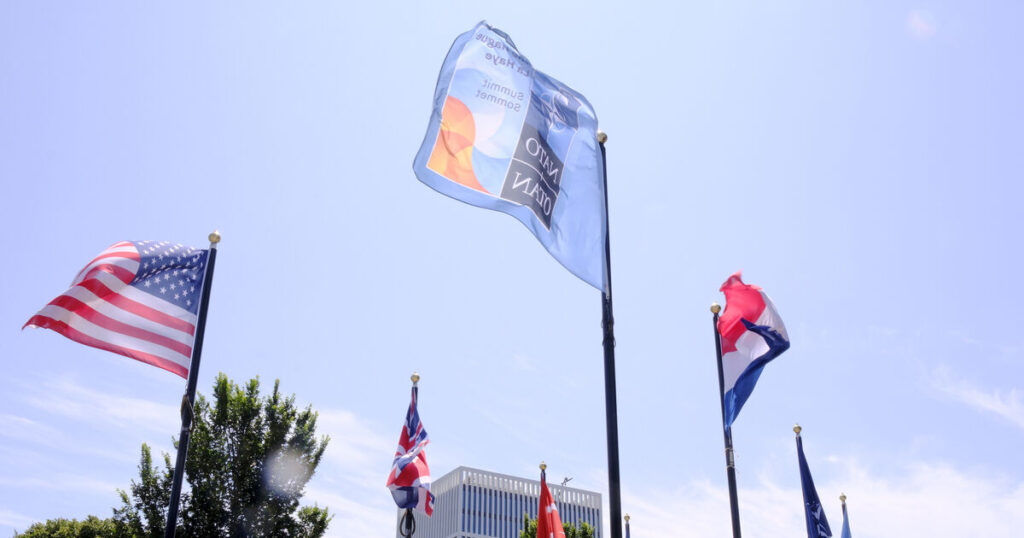World leaders were gathering in the Netherlands on Tuesday for the start of a historic two-day Nato summit that could unite the world’s biggest security organisation around a new defence spending pledge or widen divisions among the 32 allies.
The allies are expected to endorse a goal of spending 5% of their gross domestic product on their security, to be able to fulfil the alliance’s plans for defending against outside attack.
US President Donald Trump’s first appearance at Nato since returning to the White House was supposed to centre on how the US secured the historic military spending pledge from others in the security alliance — effectively bending it to its will.
But in the spotlight instead is Mr Trump’s decision to strike three nuclear enrichment facilities in Iran that the administration says eroded Tehran’s nuclear ambitions, as well as the president’s sudden announcement that Israel and Iran had reached a “complete and total ceasefire”.
Past Nato summits have focused almost entirely on the war in Ukraine, now in its fourth year. Nato secretary general Mark Rutte insisted that it remains a vital topic.
Ukrainian President Volodymyr Zelensky arrived in The Hague for a series of meetings, despite his absence from a leaders’ meeting aiming to seal the agreement to boost military spending.
It is a big change since the summit in Washington last year, when the military alliance’s weighty communique included a vow to supply long-term security assistance to Ukraine, and a commitment to back the country “on its irreversible path” to Nato membership.
In a joint tribune on the eve of this year’s summit, French President Emmanuel Macron and German Chancellor Friedrich Merz said they backed US peace efforts that should preserve Ukraine’s sovereignty and European security.
“For as long as the current trajectory lasts, Russia will find in France and Germany an unshakeable determination. What is at stake will determine European stability for the decades to come,” they wrote in the Financial Times.
“We will ensure that Ukraine emerges from this war prosperous, robust and secure, and will never live again under the fear of Russian aggression,” the two leaders wrote.
Ahead of the official programme, Mr Zelensky is scheduled to meet Dutch Prime Minister Dick Schoof. Later in the day, Mr Zelensky will address the Dutch parliament.
Dutch authorities were investigating possible sabotage against the rail network on Tuesday after a power outage left the country’s main airport with limited train services as the summit was opening.
Caretaker justice minister David van Weel told the Nato Public Forum that investigators were considering the possibility that fire in some 30 rail cables may have been set intentionally.
“It could be an activist group. It could be another state. It could be anything,” Mr Van Weel said at a roundtable gathering.
The damage disrupted rail services and no trains were running between Schiphol Airport and the country’s capital, Amsterdam.
According to service operator ProRail, a power failure occurred early on Tuesday morning in cables near the airport. An investigation revealed “considerable damage” had been done by a fire according to a statement.
Trains were running south, in the direction of The Hague, where world leaders are gathering. Leaders arriving for the summit were not taking trains, they will be whisked in motorcades along closed-down roads from the airport to hotels and the summit venue.
ProRail said it expects normal service to be returned by early evening.
Temporary barricades and metal mesh fences surrounding the World Forum summit venue are just a fraction of the major military and police operation called Orange Shield set up to ensure the safety of the alliance’s 32 leaders.
About 27,000 police officers — about half of the country’s entire force — will be on duty around the summit along with more than 10,000 defence personnel.
On Monday, pro-Russian hackers launched a series of denial-of-service attacks on several municipalities and organisations linked to the Nato summit.
The National Cybersecurity Centre said in a statement that many of the attacks were claimed by a pro-Russian hackers’ group known as NoName057(16) “and appear to have a pro-Russian ideological motive”, but did not elaborate.
France’s high-speed rail network was the target of sabotage last July, attacked by arsonists ahead of the opening ceremony in Paris of the Olympic Games.
Targeting remote locations far from the capital, the apparently co-ordinated attacks sought to cut off rail routes into the capital from all directions.
Fires were predominantly set in pipes containing critical signalling cables for the system known as the TGV.


